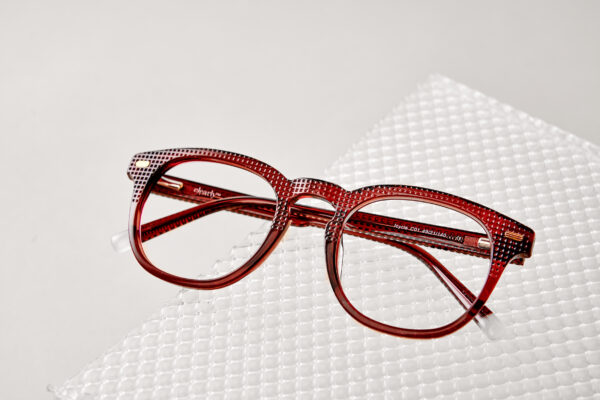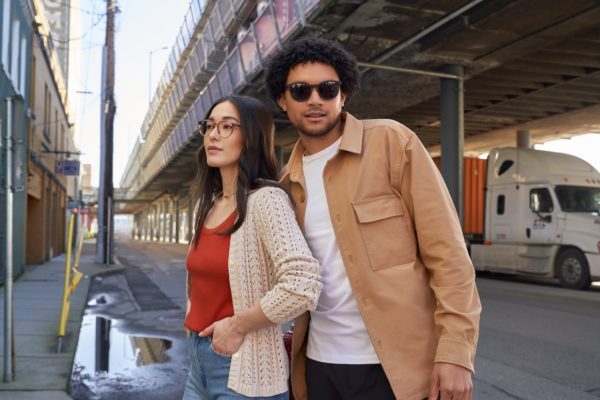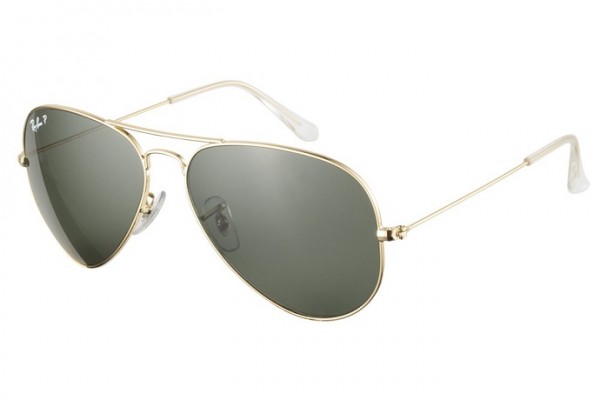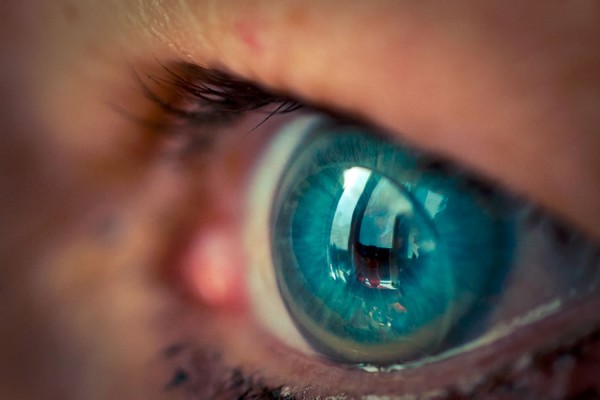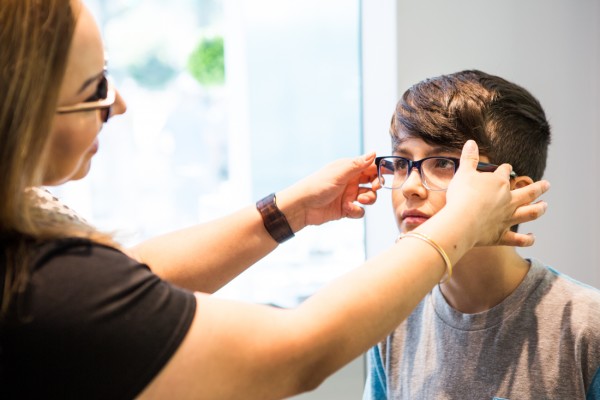Are you struggling to see clearly while driving at night or at dusk? You’re not alone. If you have trouble reading road signs and you notice that the glare from headlights and traffic lights look too bright and distracting at night, it’s time to look into a pair of night driving glasses with an anti-reflective coating.
In this blog, we’ll address some of these issues as to why driving in dimly lit conditions can make it hard to see and explain how night driving glasses can help.
Read on for insight from experts Dr. Justin Asgarpour, Optometrist and Chief Vision and Mission Officer, and Clearly opticians Megan Walsh and Karl Chua. Make sure you keep reading until the end where we’ll share tips and tricks on how to improve your night vision behind the wheel and how to buy glasses for night driving online.
- What are night driving glasses?
- Do night driving glasses work?
- What glasses should I wear for driving at night?
- Tips to improve your night vision
- What is night blindness?
- How to buy glasses for night driving online
What are night driving glasses?
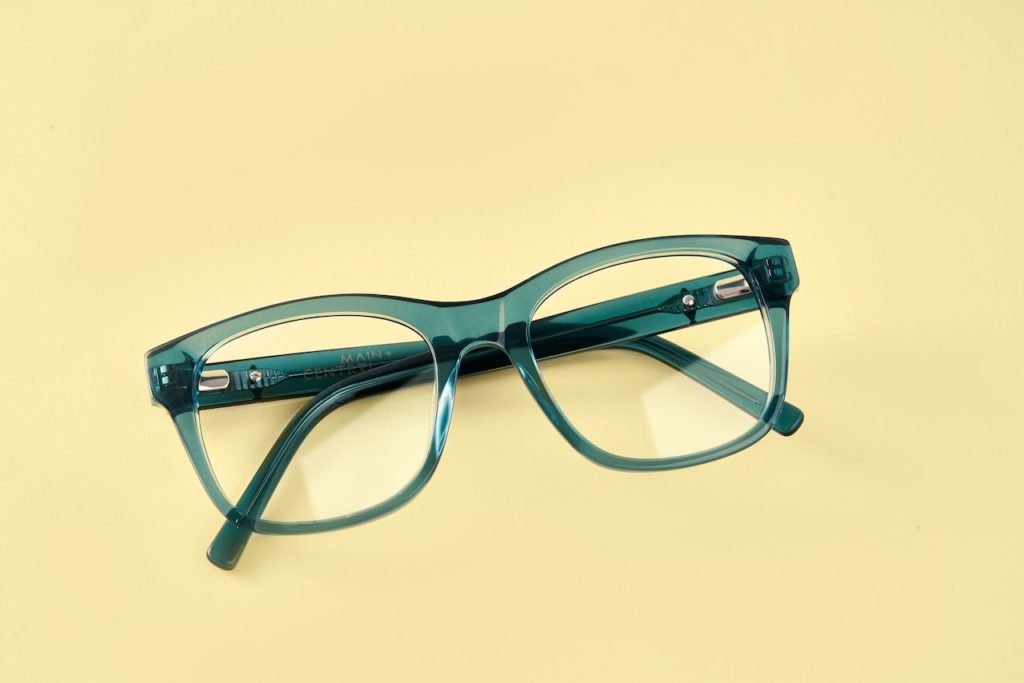
Night driving glasses often have an anti-reflective coating and clear prescription lenses to help improve clarity and reduce distracting glare that impedes your vision. These glasses are only beneficial for night driving if you need vision correction.
“If your eyes are healthy and you don’t have refraction error, it’s best not to wear glasses at all for night driving,” optician Megan Walsh says. “Glasses with an anti-reflective coating will not improve your night vision.”
You may find some retailers sell non-prescription, yellow-tinted glasses specifically for night driving that may include an anti-reflective coating. They tend to be similar to sport shooting glasses, as they enhance the colour contrast in the daytime. However, yellow-lens glasses aren’t reliable for night driving, as they reduce your visibility in dim conditions.
What makes night driving difficult?

Many people find driving at night to be more difficult and stressful than driving during the day. There are many reasons why it can be harder to see the roads at night.
- Glare from headlights, traffic lights, and streetlights
- Trouble seeing your car’s dashboard, centre console, and GPS
- Nearsightedness: Trouble seeing road signs, debris, cyclists, pedestrians, and distant objects in general
- Astigmatism (blurry vision caused by irregular shape of the eye): Increased glare, halos, or streaks around the lights
- Night blindness (nyctalopia): Inability to see and drive in low-light places
- Dirty windshields: Smudge and dust can amplify glare
Do night driving glasses work?
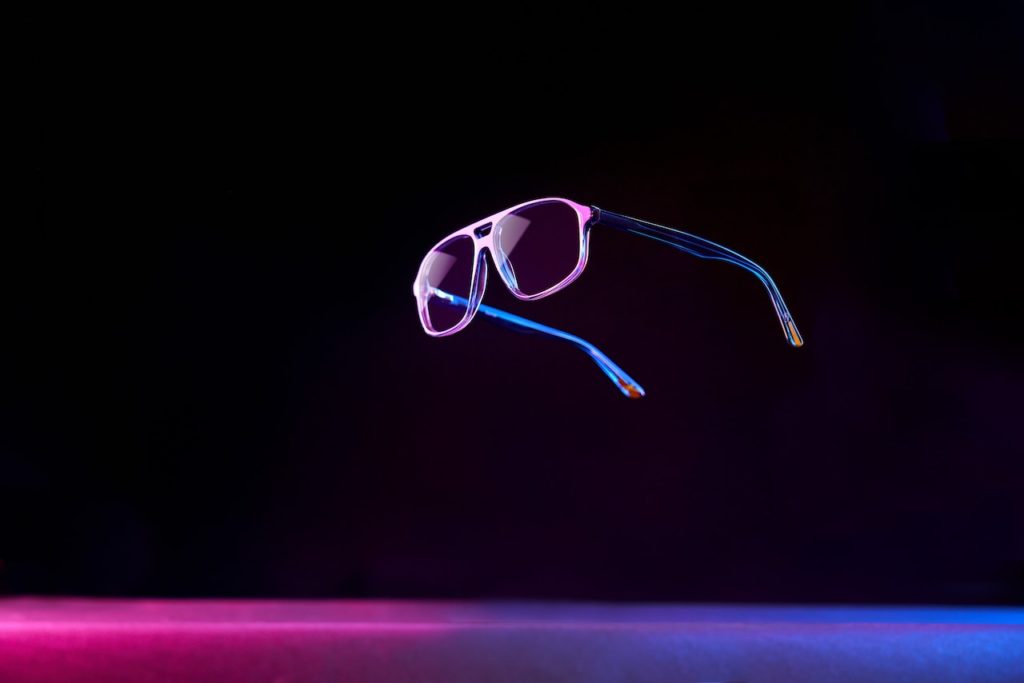
As any driver knows, blurry vision, glare, and lack of light (particularly at night or at dusk) can reduce your visibility and influence your depth perception, colour recognition, and peripheral vision – all of which are extremely important when it comes to driving, day or night.
If you have nearsightedness, farsightedness, or astigmatism, optician Karl Chua says “it’s best to wear prescription glasses with clear lenses and an anti-reflective coating to correct your vision and improve your visibility on the road at night (especially on rural roads!).”
Yellow-lens glasses won’t work for night driving because they:
- Increase contrast and improve visibility in the daytime by filtering out some of the sun’s blue light
- Limit light (like blue light) from entering your eyes and further reduce your visibility in dim places
In fact, in 2019, researchers at Harvard’s Schepens Eye Research Institute discovered that yellow tinted glasses “did not appear to improve” scanning for pedestrians at night and “may slightly worsen your night vision”. So, we know they don’t offer visual benefits for night driving.
What glasses should I wear for driving at night?

Start by having an eye exam to ensure your eyes are healthy and your glasses prescription is up to date. When you’re driving, it’s important that you’re wearing the correct prescription glasses for your vision needs.
If you need vision correction, “wear prescription glasses with clear lenses and an anti-reflective coating for night driving,” Chua says.
The benefits:
- Improve your visibility, clarity and avoid eye strain, so your eyes can focus properly on the road when dark
- Minimize glare to help you avoid hazards, so you can drive safely
Remember: if you have no refractive error, wearing non-prescription glasses with an anti-reflective coating isn’t necessary. This coating minimizes glare caused by glasses lenses, which usually happens when most lights from headlights to traffic lights and streetlights reflect off your lenses.
Tips to improve your night vision
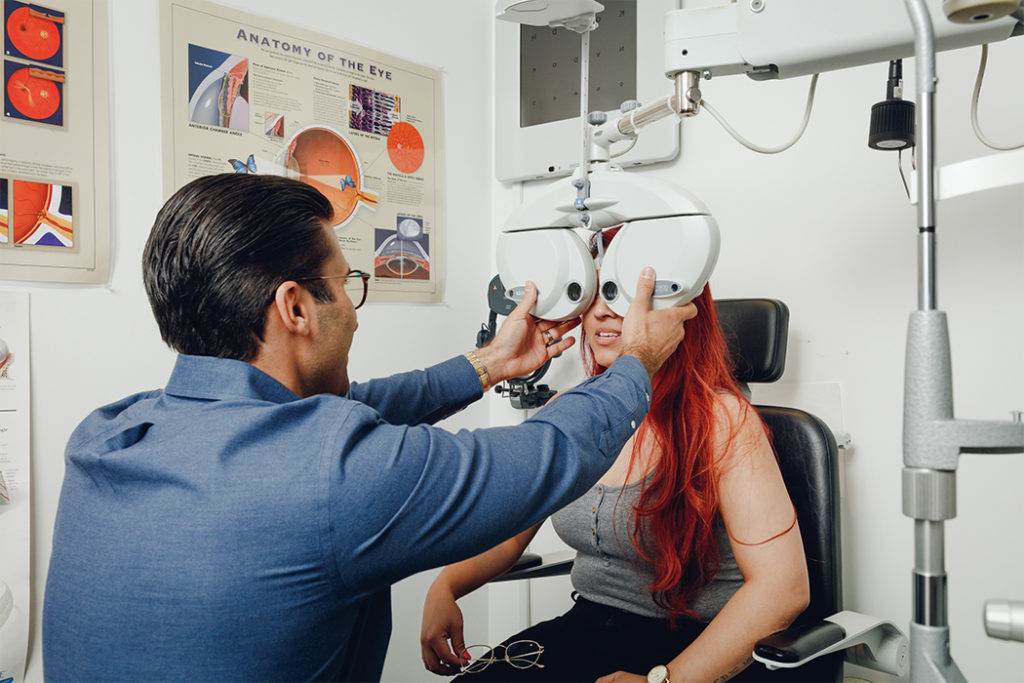
Anything that causes blurry vision or intensifies glare can interfere with your night vision. Here are some tips for improving your vision at night:
- Keep your prescription up to date with routine eye exams and wear lenses with your latest prescription
- Add an anti-reflective coating to help eliminate glare and reflections from both sides of your prescription lenses
- Upgrade your prescription lenses with C Shield coating for smudge-repellent and anti-reflection benefits to boost your visibility
- Make sure your glasses lenses are smudge-free before driving because smudges tend to amplify glare
- Make sure your windshield (both inside and out) and wipers are free of dirt streaks and dust to avoid glare from amplifying
- Keep your dashboard lights dim to prevent eye strain when driving at night
- See an eye doctor if you think your vision is getting worse at night
A regular eye exam every 1 to 2 years can help detect early signs of vision issues before it’s too late. If you can’t remember the last time you had a full eye exam, book an appointment with a local eye doctor.
What is night blindness?

Night blindness is a type of vision impairment called “nyctalopia”, caused by an existing eye disorder or health condition, which is different from the lack of visual clarity caused by glare. You may likely find it very difficult to see and drive in low-light places, such as adjusting from bright light to low light, which is why driving at night in approaching traffic can be really risky.
Causes of night blindness
- Cataracts: blurred vision caused by clouding of the eye’s lens
- Retinitis pigmentosa: dark pigments collected in the retina creates tunnel vision
- Macular degeneration: blurry spots may appear in central vision and cause inability to see details clearly at a short distance
- Nearsightedness: blurry vision when seeing things far away
- Diabetic retinopathy: caused by diabetes
- Vitamin A deficiency: causes dry cornea and can damage the retina and cornea
How to buy glasses for night driving online

Buying glasses with anti-reflective protection online for night driving is easier than you might think. Here’s what you need to get started so you can have clear vision behind the wheel at night.
1. Select your favourite frame on our glasses page
- Try on as many glasses frames as you like online with our Virtual Try On tool.
- If you’re wondering which frame shape looks best for your face shape, our Face Shape Guide is here to for you!
2. Enter your prescription
- Click ‘Add Lenses’ and enter your prescription.
- Make sure you have your glasses prescription details including your PD (pupillary distance).
- Check that your prescription is dated within the last 2 years. (If not, schedule an eye exam. P.s.: If you have workplace benefits like vision insurance, use it to cover your expenses.)
3. Choose your lens options
- Select ‘Clear Standard Lenses’ and choose your lenses
- Add C Shield coating (for smudge-repellent, anti-reflection benefits and more!)
- Head to checkout (go to our coupon codes page first to see your deals of the day and use code at checkout).
Read more:





